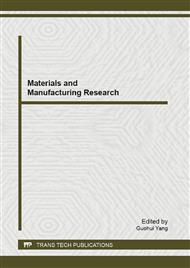p.578
p.587
p.592
p.597
p.602
p.609
p.614
p.620
p.626
Mixed H∞/H2 Output Feedback Stability Control for Dual-Motor Independent Drive Electric Vehicle
Abstract:
This paper presents the design of mixed H∞/H2Output Feedback Controller for Independent Drive Electric Vehicle Stability Control. It generates yaw moment by applying driving intervention at front Independent driving wheels according to the vehicle states. The performance of the proposed controller is evaluated through a series of simulations under different velocity and different mass. The simulation results show that the controller can help vehicle against a certain range of uncertainty (speeds and loads) and get excellent robust performance.
Info:
Periodical:
Pages:
602-608
DOI:
Citation:
Online since:
January 2013
Authors:
Price:
Сopyright:
© 2013 Trans Tech Publications Ltd. All Rights Reserved
Share:
Citation:


